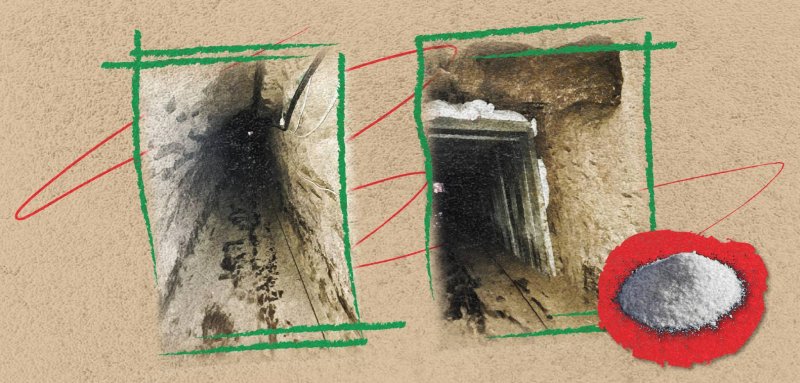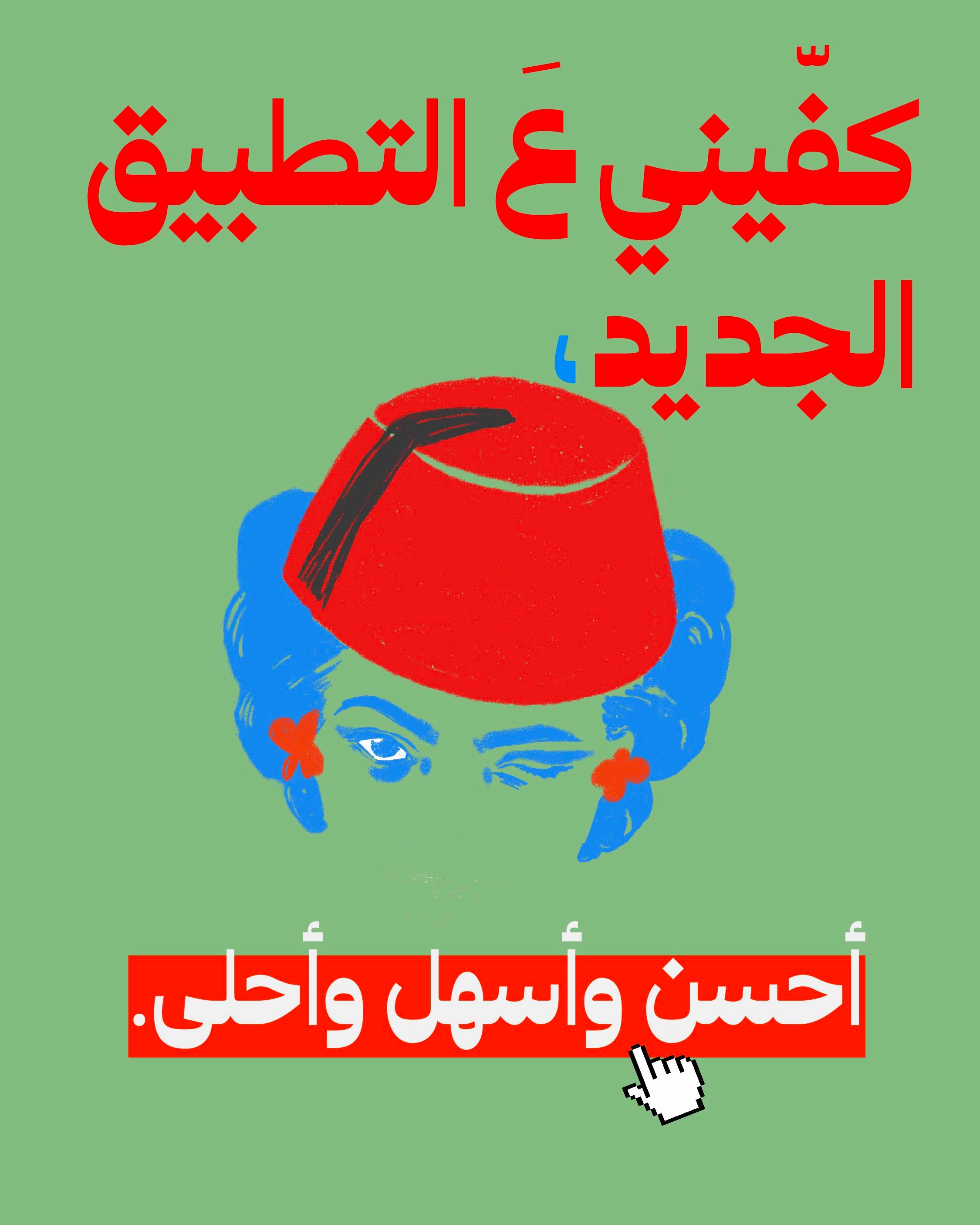Salim, 30, lives in the Gaza Strip, works in a clothing store, and is addicted to drugs, which, according to him, is the case with many young people in a besieged strip closed off on its people and their dreams.
He tells his story to Raseef22, "I was introduced to drugs through my friends. I was 23 when someone first offered me some drug pills. Things evolved quickly, and I started asking for more. The price of one strip of pills was 35 shekels, equivalent to $10 at the time."
Gaza is drowning in drugs
Salim blames his friends for this path, and blames his general circumstances at the time, along with the state of frustration he was in after he had graduated university from the Faculty of Arts and couldn't find work for a long time."
Figures from the Palestinian Central Bureau of Statistics for 2022 indicate that the unemployment rate in the Gaza Strip reaches 47%, the highest ever in the world.
Figures from the Palestinian Central Bureau of Statistics for 2022 indicate that the unemployment rate in the Gaza Strip reaches 47%, the highest in the world.
In an old study published by the Rosa Luxemburg Foundation in 2015 under the name "The Myth of Drugs in Gaza", the results revealed that about 26,500 people use drugs in Palestine, of whom a whopping 10,047 are in Gaza alone. The study found that the drugs mainly used there are "tramadol", "Lyrica", and "laughing gas", and that about 50% of drug users use more than one type of drug. These figures must have doubled due to deteriorating economic and social conditions in the region, despite the lack of any recent studies.
Salim adds, "I used to resort to theft in order to buy and take drugs. My mother caught me stealing her phone and kicked me out of the house, so I stayed with one of my friends until my father came and took me by force to a clinic in Gaza (area A) for treatment, and I was admitted into the treatment center. The days there were very heavy, and no one would answer my questions. I was just told that I would stay there until I'm fully cured."
Ahmad (pseudonym), a 33-year-old man, tells his story to Raseef22, "I took Tramadol for the first time after I was once injured by an Israeli air strike, and because of the severe pain I was feeling, I had to take large doses of this substance. At first, and for the first four months, I used to acquire it via prescription. But later, as I began experiencing withdrawal symptoms, I'd feel a numbness all over my body and would almost fall to the ground. On one such occasion, I rushed to the pharmacy to buy it as usual, but the pharmacist refused to give me the pills without a prescription, and a clash happened between us that led me to be imprisoned on charges of drug abuse."
The drugs come through secret tunnels..
Drugs enter the Gaza Strip from Egypt through secret tunnels, specifically the side tunnels that begin from the Sinai Peninsula, according to the Anti-Narcotics police in the Rafah governorate. They are transported by a group of Palestinian smugglers, and are then promoted by major dealers who recruit young men to sell them.
"I took Tramadol for the first time after I was injured by an Israeli air strike, and because of the severe pain I was feeling, I had to take large doses of this substance." — Ahmad, a 33-year old Palestinian
The most common types of drugs and painkillers that are classified as addictive substances are opium, tramadol, morphine, cocaine, heroin, hashish, hallucinogenic drugs, hypnotic drugs, laughing gas, and khat (qat).
"Laughing gas" comes in the form of a metal canister that weighs no more than eight grams and is compressed with nitrous oxide. It is widespread among teenagers and young adults in abundance in the strip. The life of Moataz Mansour, 33, has been turned upside down by this gas, as he put it. After he lost his job due to a financial crisis in the company he had served for many years, some friends advised him to buy one and try it in order to make himself feel better and forget his worries.
Mansour did just that, and only a few hours had passed before a video had spread on social networking sites showing him laughing hysterically, hallucinating, and stuttering while in a state of confusion, which prompted his fiancée to break her engagement with him because she and her family believed that he was drunk.
"Laughing gas" comes in the form of a metal canister that weighs no more than eight grams and is compressed with nitrous oxide. It is widespread among teenagers and young adults in abundance in the Gaza Strip
Abdullah Alawi, Director General of the Anti-Narcotics Department in the Gaza Strip, tells Raseef22, "The recreational use of laughing gas is on the rise, and it has spread among young adults during the outbreak of the coronavirus and the accompanying lockdown, as cannabis and ecstasy pill addicts were forced to use it as a substitute to drugs, which has become a source of major concern and the subject of growing debate during the recent period."
The need to laugh... Even if it's from gas
Ali (pseudonym), an 18 year old high school student, says, "I have never heard of a country in the world that has classified laughing gas as a type of drug, and I believe that the police cannot exercise their legal authority — such as enforcing punishment, conducting arrests, or imposing fines — just because someone tried laughing gas for the sake of entertainment and to blow off some steam. It is also a cheap and safe alternative for those who do not want to become addicted to drugs."
For his part, Fadel Ashour, a psychiatrist who specializes in addiction treatment, confirms to Raseef22 that the spread of drugs in the past used to only take place among the poor and less educated classes, but today it is spreading among all groups without any distinction between the economic or educational level of the people.
The police in the Gaza Strip impose harsh legal penalties on drug dealers and addicts. If caught, their punishment may reach up to 20 years in prison. In the past, it has even reached the death penalty a few times for some traffickers and dealers, since the crime of trafficking is subject to a military — rather than civilian — trial by the security forces in the besieged strip.
رصيف22 منظمة غير ربحية. الأموال التي نجمعها من ناس رصيف، والتمويل المؤسسي، يذهبان مباشرةً إلى دعم عملنا الصحافي. نحن لا نحصل على تمويل من الشركات الكبرى، أو تمويل سياسي، ولا ننشر محتوى مدفوعاً.
لدعم صحافتنا المعنية بالشأن العام أولاً، ولتبقى صفحاتنا متاحةً لكل القرّاء، انقر هنا.


